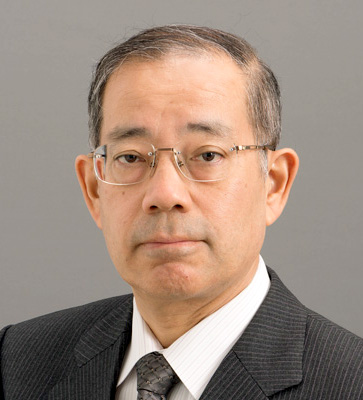Honorary Member

Dr. Iwao Sasase completed the Doctoral course at the Graduate School of Engineering at Keio University in 1984 and became a professor in 1999 after working as an assistant, full-time lecturer, and associate professor at the Faculty of Science and Technology, Keio University. After this, he also served as the chief of the Center for Information, Communication and Media Technologies, the chief of the Department of Information and Computer Science, the director of Information and Media Center for Science and Technology, and the deputy director of the Headquarters for Research Coordination and Administration and retired in March 2022 and is scheduled to become an emeritus professor from April.
In the field of information and communication networks, he conducted a wide range of research, including satellite/microwave communication, mobile communication, wireless ad hoc sensor network, wireless home link, network security, IoT, photonic network, ATM switch, Asymmetric Digital Subscriber Line (ADSL), radar, signal processing, communication power supplies, chaos, and carried out industry-government-academia collaboration. To date, he has produced remarkable research results, such as 302 original papers and 448 international conference papers. In particular, highly original and pioneering research, including high-speed wireless home link method, domestic ADSL practical application, modulation/access method suitable for mobile communication, optical Code Division Multiple Access (CDMA), and chaos encryption, has been highly evaluated internationally. In particular, his remarkable achievements include the following: contributing significantly to the spread of the Internet in ordinary households by solving the interference problem in ADSL by adopting transmission map switching and error detection correction, developing and realizing the domestic standardization of the "Wireless 1394" method as a high-speed wireless home link method for the first time in the world by adopting orthogonal frequency division multiplexing and reserved random access method, leading Japan to the start of the world's first 3G service by succeeding in video transmission making full use of modulation, access, and interference elimination technology in joint research, and activating research in the IoT/security field such as secure inventory/logistics management using wireless tags and blockchain technology.
Against the background of his achievements, at the Institute of Electronics, Information and Communication Engineers he has held positions including President, Chair of the 100th-Anniversary Commemorative Project Management Committee, Chair of the Communications Society, Chair of the Technical Committee on the Network Systems, and Chair of the Technical Committee on the Communication Systems. In addition, at the IEEE, he has held positions including Tokyo Section Chair, IEEE Communication Society Board of Governors Member-at-Large, Asia Pacific Regional Director, Satellite and Space Technical Committee Chair. He has made an outstanding contribution to the management of academic societies and the activation of research and development. He has also held important positions such as member of the Radio Regulatory Council in government offices.
On the other hand, in terms of education, he has been involved in a wide range of education, from basics to applications in information and communication engineering. He has cultivated human resources who have demonstrated leadership to lead the information and communication revolution. It is worth noting that he has produced more than 50 doctoral degree holders and more than 200 master's degree graduates. Also, in May 2018, his manuscript on "Fostering young people by submitting papers to top international conferences - Establishing a sustainable research community -" clearly summarizes the significance of making a presentation at international conferences. It has been selected for the first award of "The 1st IEICE Communications Society: Magazine Award" because it is meaningful not only for young researchers but also for those in the position of teaching and training them.
As mentioned above, his pioneering research achievements in the field of information and communication networks, human resource development through research and educational guidance, and contributions to the management of the IEICE and the development of academia and industry in the field of electronics, information and communication are incredibly remarkable. We recommend Dr. Sasase as an Honorary Member of the IEICE.